Common Reasons Why Your Drill Bit Keeps Falling Out

There’s nothing more frustrating than when you’re in the middle of a project and your drill bit keeps falling out. Not only does it slow you down, but it can also be dangerous. There are several reasons why this might be happening, and identifying the cause can help you find a solution and prevent it from happening again in the future.
One common reason for a drill bit falling out is a loose chuck. The chuck is the part of the drill that holds the bit in place, and if it’s not tightened properly, the bit can easily slip out. To fix this issue, make sure the chuck is tightened securely before you start drilling. You can do this by holding the chuck in one hand and using the other to tighten it with a wrench or the key that came with your drill.
Another possible reason for a drill bit falling out is worn or damaged parts. Over time, the chuck or the drill bit itself can become worn down, making it difficult for them to stay securely in place. In this case, you may need to replace the chuck or the drill bit to ensure a tight fit. It’s also a good idea to regularly inspect your drill for any signs of wear and tear and address them promptly.
Finally, using the wrong type of drill bit for the job can also cause it to fall out. Different materials require different types of drill bits, and using the wrong one can result in a loose fit and increased risk of the bit falling out. Make sure you’re using the appropriate drill bit for the material you’re working with, whether it’s wood, metal, or concrete.
Worn Chuck
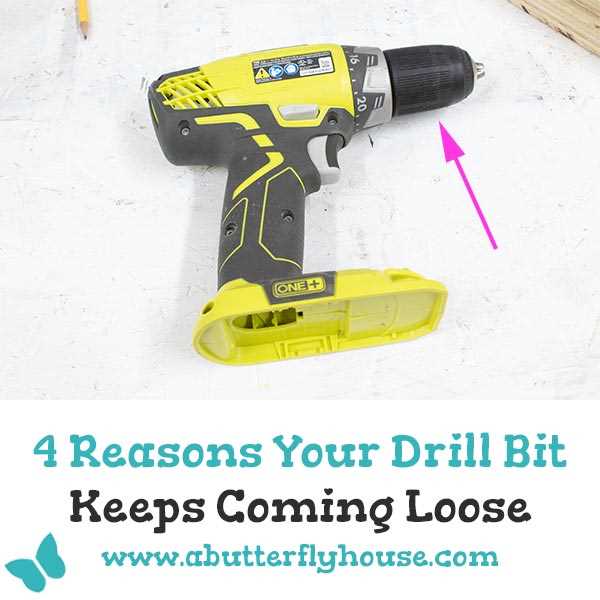
A worn chuck can also cause your drill bit to keep falling out. The chuck is the part of the drill that holds the bit in place, and over time it can become worn or damaged, resulting in a loose fit. This can be caused by regular wear and tear or by using a drill bit that is too large or too small for the chuck.
Here are some signs that your chuck may be worn:
- The drill bit does not stay securely in the chuck and keeps falling out.
- You notice increased wobbling or shaking when using the drill.
- The chuck appears visibly worn or damaged.
If you suspect that your chuck is worn, there are a few steps you can take to try and fix the issue:
- Inspect the chuck for any visible signs of wear or damage. If you notice any cracks, chips, or other issues, it is likely that the chuck needs to be replaced.
- Check the chuck’s jaws for any debris or obstruction. Sometimes, dirt or debris can prevent the chuck from gripping the drill bit properly. Try cleaning the chuck and jaws thoroughly with a brush or compressed air.
- Adjust the chuck tension. Most chucks have a tension adjustment mechanism that can be tightened or loosened to improve grip. Check your drill’s manual for instructions on how to adjust the chuck tension.
If none of these steps are successful in resolving the issue, it may be necessary to replace the chuck entirely. Consult your drill’s manual or contact the manufacturer for instructions on how to replace the chuck.
Remember, a worn chuck can not only cause your drill bit to fall out, but it can also pose a safety risk. Always make sure that your drill bit is securely held in place before operating the drill.
Loose Chuck
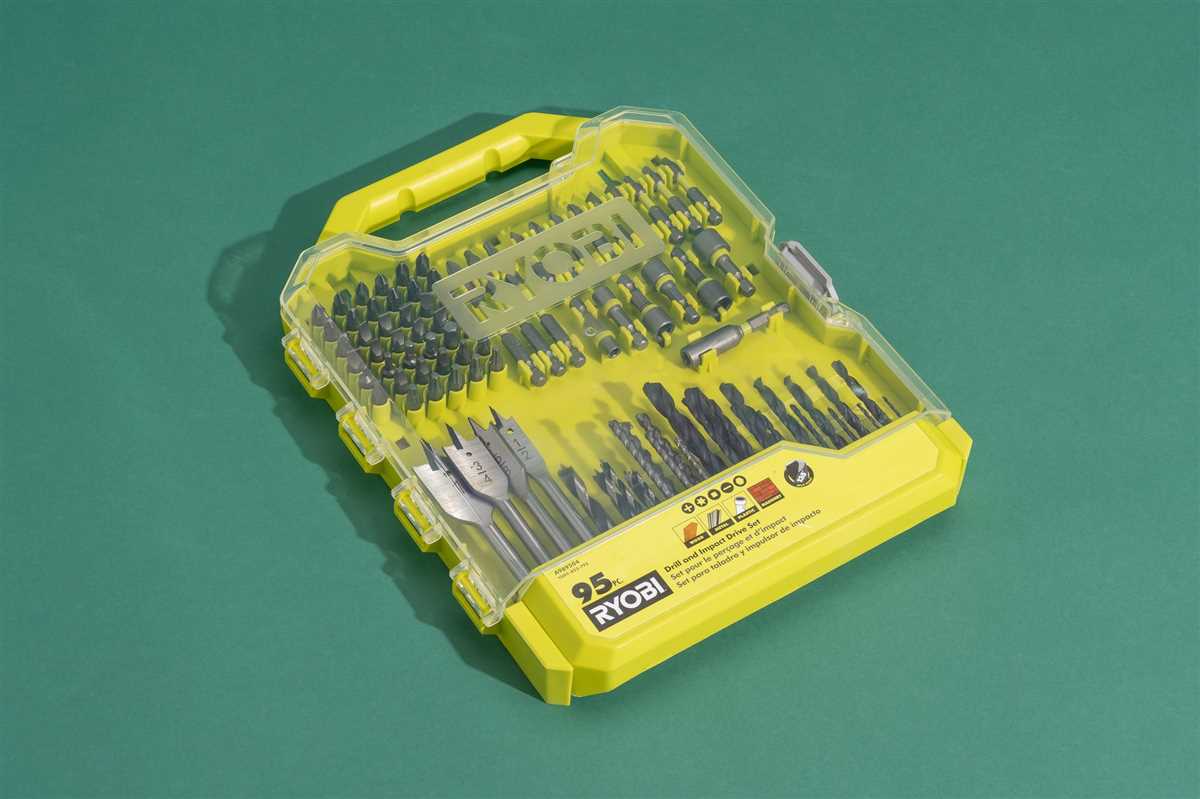
A loose chuck is one of the most common reasons why a drill bit keeps falling out. The chuck is the part of the drill that holds the bit in place, and if it becomes loose, the bit won’t stay securely in place during use. There are several reasons why a chuck may become loose:
- Worn out chuck: If the chuck is old or worn out, it may not grip the drill bit tightly enough, causing it to slip out. Over time, the metal jaws that hold the bit can wear down or become damaged, leading to a loose chuck.
- Improper tightening: If the chuck is not tightened properly, it may not secure the bit tightly. It’s important to use the correct technique when tightening the chuck to ensure a secure hold. This may involve using both hands to grip the chuck and turning it with enough force.
- Dust and debris: Dust and debris can accumulate in the chuck over time, causing it to become clogged and preventing it from tightening properly. Regular cleaning and maintenance can help prevent this issue.
- Low-quality chuck: Some drills come with lower-quality chucks that are prone to becoming loose. If you have a cheap or low-quality drill, it may be worth investing in a higher-quality chuck or even a new drill altogether.
If you’re experiencing a loose chuck, there are a few steps you can take to fix the problem:
- Tightening the chuck properly: Make sure you’re using the correct technique when tightening the chuck. Grip it with both hands and apply enough force to secure the bit tightly.
- Cleaning the chuck: Regularly clean out any dust or debris that may be stuck in the chuck. You can use compressed air or a small brush to remove any buildup.
- Replacing the chuck: If your chuck is old or worn out, it may be necessary to replace it. Check with the manufacturer or a local hardware store to find a compatible chuck for your drill.
By addressing the issue of a loose chuck, you can ensure that your drill bit stays securely in place during use and eliminate the frustration of constantly having to reinsert it.
Incorrectly Sized Drill Bit
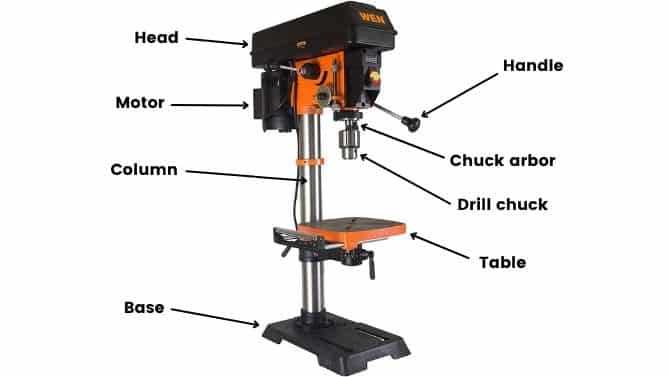
One common reason why your drill bit keeps falling out is because it is incorrectly sized for the task at hand. Using a drill bit that is too small or too large for the material you are drilling can result in a loose fit and the bit easily slipping out.
When selecting a drill bit, it is important to consider the size of the hole you need to create. Using a drill bit that is slightly smaller than the desired hole size can provide a tighter fit and minimize the risk of the bit slipping out. On the other hand, using a drill bit that is too large can lead to a loose fit and a lack of stability during drilling.
It is also important to consider the type of material you are drilling into. Different materials require different drill bit sizes and types. For example, drilling into wood may require a different drill bit size and type than drilling into metal or concrete. Using the wrong drill bit can result in a loose fit and the bit falling out.
In addition to selecting the correct size drill bit, it is also important to ensure that the drill bit is securely inserted into the drill chuck. If the drill bit is not properly inserted and tightened, it can easily come loose during drilling.
Overall, using a correctly sized drill bit for the task at hand is essential for a secure and successful drilling experience. Always double-check that you have the right size and type of drill bit for the material you are drilling into, and make sure it is securely inserted and tightened in the drill chuck.
Insufficient Chuck Tightening
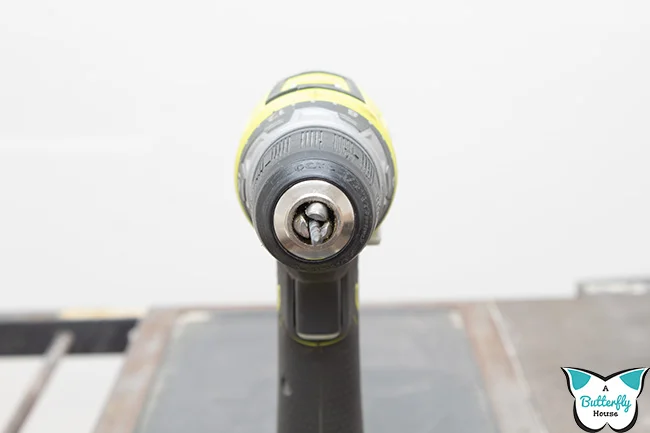
One common reason why a drill bit may keep falling out is insufficient chuck tightening. The chuck is the part of the drill that holds the bit in place. If the chuck is not tightened enough, it can cause the drill bit to loosen and eventually fall out during use.
There are a few reasons why the chuck may not be tightened properly. One possibility is that the user did not tighten the chuck enough when inserting the bit. It is important to tighten the chuck firmly to ensure that the bit is securely in place.
Another reason could be that the chuck itself is worn or damaged, which can prevent it from holding the bit tightly. In this case, replacing or repairing the chuck may be necessary to resolve the issue.
One way to ensure sufficient chuck tightening is to use a chuck key, if your drill requires one. The chuck key allows you to manually tighten the chuck by rotating it clockwise. Make sure to use the chuck key to tighten the chuck as much as possible.
If your drill does not require a chuck key, it may have a keyless chuck. In this case, you can tighten the chuck by hand by gripping the chuck and rotating it clockwise. Again, be sure to tighten it as much as possible to secure the drill bit.
It is also important to note that over-tightening the chuck can also cause issues. This can put excessive stress on the chuck and the bit, potentially leading to damage. It is important to find the right balance and tighten the chuck enough to secure the bit without applying excessive force.
Regularly checking and tightening the chuck before each use can help prevent the drill bit from falling out. By ensuring that the chuck is properly tightened, you can ensure safer and more efficient drilling operations.
Damaged or Worn Drill Bit
One common reason why your drill bit keeps falling out is because it is damaged or worn. Over time, drill bits can become dull or damaged from repeated use or misuse. When a drill bit is not in its optimal condition, it may not be able to grip the material properly, causing it to fall out during drilling.
To determine if your drill bit is damaged or worn, you should inspect it closely. Look for signs of wear such as dullness, chipping, or bending. If the cutting edges are no longer sharp or if there are any signs of damage, it is likely that your drill bit needs to be replaced.
In addition, make sure that you are using the correct type of drill bit for the material you are drilling into. Different drill bits are designed for different materials, and using the wrong type of bit can cause it to wear out faster or become damaged.
If you find that your drill bit is indeed damaged or worn, you should replace it with a new one. It is important to use sharp and undamaged drill bits to ensure clean and efficient drilling. Using a damaged drill bit can not only lead to frustration but also increase the risk of accidents and injuries.
When purchasing a new drill bit, consider investing in high-quality ones that are made from durable materials. These may be more expensive initially, but they will be more resistant to wear and tear, resulting in a longer lifespan.
Remember to always handle your drill bits with care to prevent damage. Avoid dropping them or using excessive force when drilling. Proper maintenance and regular inspection of your drill bits can also help identify any issues early on and prevent them from causing further problems.
Excessive Vibration

Excessive vibration can be a common reason why your drill bit keeps falling out. When a drill bit is not properly secured, it can vibrate and cause it to become loose or even fall out completely. There are several factors that can contribute to excessive vibration:
- Worn-out drill chuck: If the drill chuck is worn out, it may not grip the drill bit tightly enough, causing it to vibrate and come loose.
- Imbalanced drill bit: If the drill bit is not properly balanced, it can create vibrations while drilling, leading to the bit coming loose.
- Incorrect drilling technique: Using the wrong drilling technique or applying too much pressure can cause excessive vibrations, making it more likely for the drill bit to fall out.
- Improper speed settings: Incorrect speed settings on the drill can lead to vibrations, as different materials require different drilling speeds.
To prevent excessive vibration and keep your drill bit securely in place, try the following solutions:
- Ensure that the drill chuck is in good condition and properly tightened. If it is worn out, consider replacing it.
- Check the balance of the drill bit by examining it for any visible signs of damage or irregularities. If it is unbalanced, replace it with a new one.
- Use the correct drilling technique, applying steady and even pressure without forcing the drill.
- Adjust the speed settings on your drill to match the material you are drilling into.
By addressing these potential causes of excessive vibration, you can ensure that your drill bit stays securely in place and minimize the risk of it falling out during use.
Improper Drill Bit Type
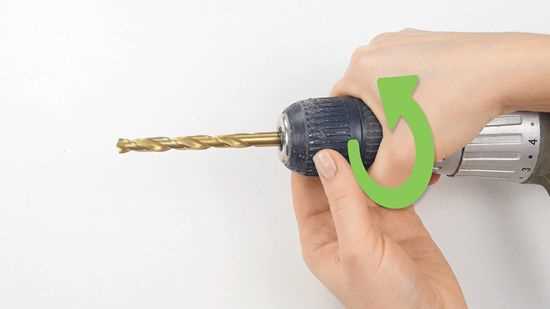
Using the wrong type of drill bit can cause it to fall out of the drill chuck. Different drilling tasks require different types of bits, so it’s important to use the correct bit for the job.
Here are a few common examples of using the wrong drill bit type:
- Using a wood drill bit on metal: Wood drill bits are designed specifically for drilling into wood and may not have the necessary durability or strength to drill through metal. Using a wood bit on metal can cause the bit to dull quickly or break, causing it to fall out of the drill chuck.
- Using a metal drill bit on concrete: Metal drill bits are not designed for drilling into hard materials like concrete. Concrete requires a specialized masonry drill bit that is specifically designed for this type of material. Using a metal bit on concrete can cause the bit to overheat, wear out quickly, and potentially fall out of the drill chuck.
- Using the wrong size drill bit: Using a drill bit that is too large or too small for the intended hole can cause it to slip or not grip the material properly, leading to it falling out of the drill chuck.
It’s important to always choose the correct drill bit type for the material you are working with to ensure proper drilling and prevent the bit from falling out of the drill chuck.
Quality of Drill Bit
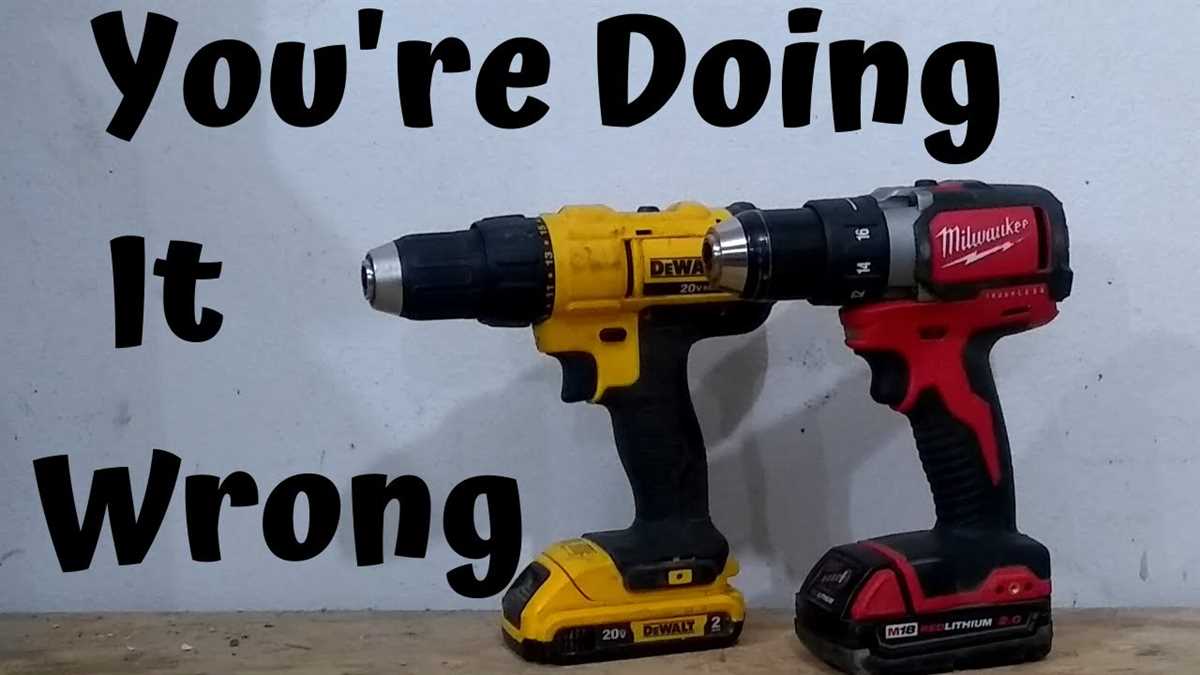
A common reason why your drill bit keeps falling out is due to the quality of the drill bit itself. There are several factors to consider when determining the quality of a drill bit:
- Material: The material of the drill bit plays a significant role in its quality. High-quality drill bits are typically made from materials such as high-speed steel (HSS) or cobalt. These materials are known for their durability and resistance to wear and tear.
- Manufacturing process: The manufacturing process used to produce the drill bit can also affect its quality. Reputable manufacturers employ precise techniques and quality control measures to ensure consistency and accuracy in their products.
- Design: The design of the drill bit can impact its performance and stability. Drill bits with a well-engineered design are less likely to slip or fall out during use.
- Coating: Some high-quality drill bits come with a coating, such as titanium nitride or black oxide, which improves their strength, durability, and resistance to heat and friction. Coated drill bits also tend to have better grip and reduce the likelihood of slipping out.
- Sharpness: A sharp drill bit is crucial for effective drilling. Dull or worn-out drill bits can easily slip or lose their grip, especially when drilling into hard materials. Sharpening or replacing the drill bit regularly can help maintain its quality and prevent slippage.
Investing in high-quality drill bits can be a worthwhile expense, as they tend to last longer, provide better performance, and reduce the likelihood of the bit falling out or slipping. It is also essential to use the appropriate drill bit for the specific material and application to further ensure stability and prevent accidents.
FAQ:
Why does my drill bit keep falling out?
There could be several reasons why your drill bit keeps falling out. One possibility is that the chuck on your drill is not properly tightened. Another reason could be that the drill bit itself is worn out and needs to be replaced. Additionally, if you are drilling into hard materials, such as concrete or metal, the vibrations from the drill may cause the bit to become loose over time. Finally, if you are using a drill bit that is not the correct size for the job, it may not fit securely in the chuck and could fall out.
How can I fix a drill bit that keeps falling out?
If your drill bit keeps falling out, you can try a few different solutions. First, make sure that the chuck on your drill is tightened securely. You can do this by turning the chuck to the right with your hand or using a chuck key, if applicable. If tightening the chuck doesn’t solve the problem, you may also want to check the condition of the drill bit itself. If it is worn out or damaged, it will not stay securely in the chuck and will need to be replaced. Finally, if you are drilling into hard materials, such as concrete or metal, you may want to use a bit designed specifically for that material to ensure a secure fit.
Is it normal for a drill bit to fall out?
No, it is not normal for a drill bit to fall out. When properly secured, a drill bit should stay in place while drilling. If your drill bit keeps falling out, it is likely due to one of the reasons mentioned in the article, such as a loose chuck or a worn out bit. It is important to address the issue and fix it to ensure safe and efficient drilling.
Can a drill bit become loose during drilling?
Yes, a drill bit can become loose during drilling, especially if you are drilling into hard materials or using a drill with a lot of vibration. The constant motion and vibrations can cause the drill bit to gradually become loose over time. It is important to keep an eye on the bit’s tightness during drilling and to re-tighten it if necessary. Using a bit designed specifically for the material you are drilling into can also help reduce the likelihood of the bit becoming loose during drilling.
How can I prevent my drill bit from falling out?
To prevent your drill bit from falling out, there are a few steps you can take. First, always make sure that the chuck on your drill is tightened securely. You can do this by turning the chuck to the right with your hand or using a chuck key, if applicable. Additionally, using a drill bit that is the correct size and type for the job can help ensure a secure fit. If you are drilling into hard materials, such as concrete or metal, using a bit designed specifically for that material can help prevent the bit from becoming loose during drilling. Finally, periodically checking the tightness of the bit during drilling and re-tightening if necessary can help prevent it from falling out.
Is it dangerous if a drill bit falls out while drilling?
If a drill bit falls out while drilling, it can be dangerous. This can cause the drill to suddenly stop and potentially lead to injury or damage to the workpiece. Additionally, if the bit falls out and becomes loose while the drill is still running, it can cause damage to the chuck or other components of the drill. It is important to properly secure the drill bit before starting any drilling operations to ensure safe and efficient drilling.
Video:









